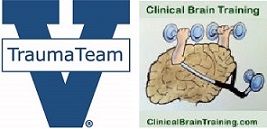As I’ve said in the podcasts and posts, improvising off the top of your head in high risk situations usually doesn’t work out well for anyone. Yet, sometimes you see people respond effortlessly, when circumstances take a rapid turn for the worse, and you think “wow, they can really think on their feet”. There are probably two things going on in experienced people’s minds in those situations.
First, they have been through the situation before, and if you looked at some of the posts, and lectures, you know that when you go through situations multiple times, you create a “model” or “schema” in your head for that situation. That means that your brain goes “ok I’ve been through this, that looks like it did before, that does also, last time I did this and it worked out, I’m going to do that again”. A really experienced person also adds “I’m going to watch out for X, because if that happens, I’m screwing up and I need to change to plan B.”
That works well for people with lots of experience who have worked their way through a lot of situations, what do you do if that’s not you? The key is “mental war gaming” and thinking a few steps ahead, and thinking “what if this is going on?”. Ran a call with the firefighters recently where a child was not responsive after a seizure. I felt the child was OK, but my brain immediately said “check the pupils, check the oxygen sats, and keep a close eye on the breathing” because I’ve been in situations where children have looked OK, but 10 seconds later their lips are blue and they are in respiratory arrest. So if the pupils are equal, the breathing is steady, and the sats are OK, I relax a little. But I also said to myself “what if he stops breathing, or his sats are 80%?” and I began looking for where the bag mask, and peds mask are, where the airway equipment is, and when the transport unit is getting to the scene. You also start playing in your head “if he’s not breathing, what am I going to grab first, are we going to try to ventilate him where we are, or move to a better spot, are we going to let the incoming unit know?, what if we cant bag mask the patient?”, etc.
I was thinking those things, but later I was mad at myself because I was lazy. As soon as I saw that the patient was unresponsive, I should have found the airway equipment, and had it in my or the medic’s hands. I should done that because I also know that if something bad happens, it’s a lot easier to have the stuff you need right in front of you, rather than just thinking “I know what bag that’s in”. This is especially true in the trauma bay since it takes someone else to get the equipment and set it up, leading to an even longer delay. It’s always better in the bay to have the equipment out, on a table, with everything you will need already pulled. Then when you need it you just need to open the packinging and get to work.
Clinical brain training makes you a better provider. Its easy to do on any call or hospital situation, and provides you with constant mental training for when a big situation hits.



 Subscribe in iTunes
Subscribe in iTunes